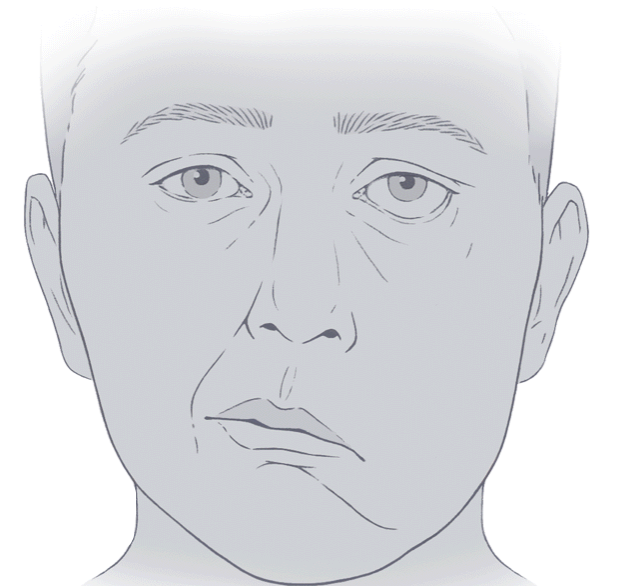Facial paralysis
What is facial paralysis?
Facial paralysis, or facial palsy, means to suffer an inability to move the muscles of the face. This is usually related to the dysfunction in the facial nerve activity that makes the patient unable to control the facial muscles on the side of the affected nerve. It is usually related to infections, tumors, trauma, vascular problems or may have a congenital origen. One of the possible triggers for this type of paralysis in people without other previous pathologies is what is known as Bell’s palsy, which is nothing more than an inflammation of the facial nerve related to a virus.
The typical symptoms are usually the inability to blink, raise the eyebrows, smile or express emotions with the face, as well as drooling, speech disorders and nasal obstruction.
It is a very disabling pathology, that causes severe physical and psychological problems for the affected patients. Blinking and eye closure difficulties can cause keratitis and even vision impairment. Eating also is complicated because of the lack of control of perioral muscles. Social relations might be altered.
There are countless highly specialized procedures that can return the patient to have a very good appearance and functionality, if not almost identical, to what they had previously.
How can facial paralysis be treated?
Unfortunately, in facial paralysis, early diagnosis and therapeutic guidance is often essential, since many cases valued within the first year can be solved with less traumatic surgeries that try to recover the function of the facial muscles. After that time, that recovery is not feasible, and more complex procedures will be needeed.
In some cases, acute facial paralysis can be treated with lifestyle therapies and medications. However, in other cases, acute paralysis will not recover, and surgery may be necessary to improve the ability to move the muscles of the face and restore facial function.
Likewise, its multidisciplinary treatment is important, so teamwork between neurologists, neurophysiologists, rehabilitators, oculoplastics, otolaryngologists and head and neck reconstructive surgeons will also lead to the best result.
How can Instituto Facial help me?
Before undergoing any type of surgery for facial paralysis, it’s important to speak with a doctor and consider all available treatment options. Surgery is not suitable for all patients and can have risks and complications. However, in some cases, it can be an effective option for improving facial function and appearance and improving quality of life.
At Instituto Facial we have extensive experience in surgery for the treatment of facial paralysis through reconstructive microsurgery and muscle and nerve transfer. We are specialists in advanced head and neck surgery. Contact us and we will evaluate your case in detail.

